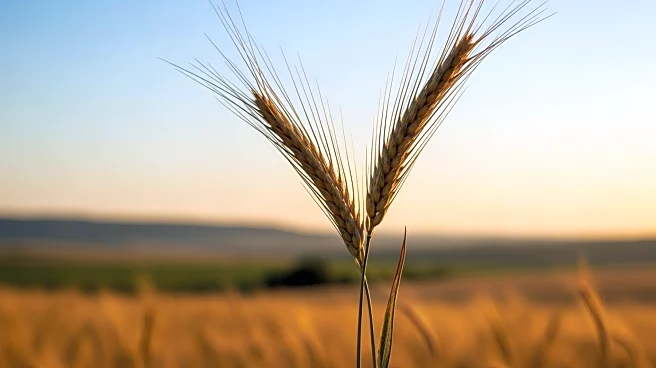What's Happening?
The Food and Agriculture Organisation (FAO) of the United Nations has reaffirmed its commitment to promoting gender equity and women's participation in transforming agrifood systems across Africa. At a regional
workshop in Accra, FAO officials emphasized the importance of gender equity in achieving efficient, inclusive, resilient, and sustainable agrifood systems. The event brought together decision makers, technical experts, civil society, farmers' organizations, and development partners to advance policies guided by the Committee on World Food Security's Voluntary Guidelines on Gender Equality and Women's Empowerment.
Why It's Important?
Gender equity in agrifood systems is crucial for closing the productivity gap and enhancing national development and household food security. Women play integral roles in food systems globally but face significant barriers in accessing resources such as land, finance, and technology. Addressing these inequalities can lead to increased productivity and economic growth, benefiting both national economies and individual households. The FAO's commitment to gender equity represents a significant step towards empowering women and ensuring their full participation in agrifood systems.
What's Next?
FAO will continue to support governments in strengthening inclusive policies and applying gender transformative approaches. The organization plans to implement initiatives such as the Accelerator Mentorship Programme for Women Led SMEs and collaborate with partners to promote gender-responsive disaster risk reduction. These efforts aim to provide women with the resources and opportunities needed to overcome barriers and contribute effectively to agrifood systems.
Beyond the Headlines
The focus on gender equity in agrifood systems highlights broader issues of social justice and economic empowerment. By addressing gender disparities, FAO is not only promoting equality but also driving sustainable development and resilience in the face of climate-related challenges. This approach underscores the interconnectedness of gender equity, food security, and environmental sustainability.










